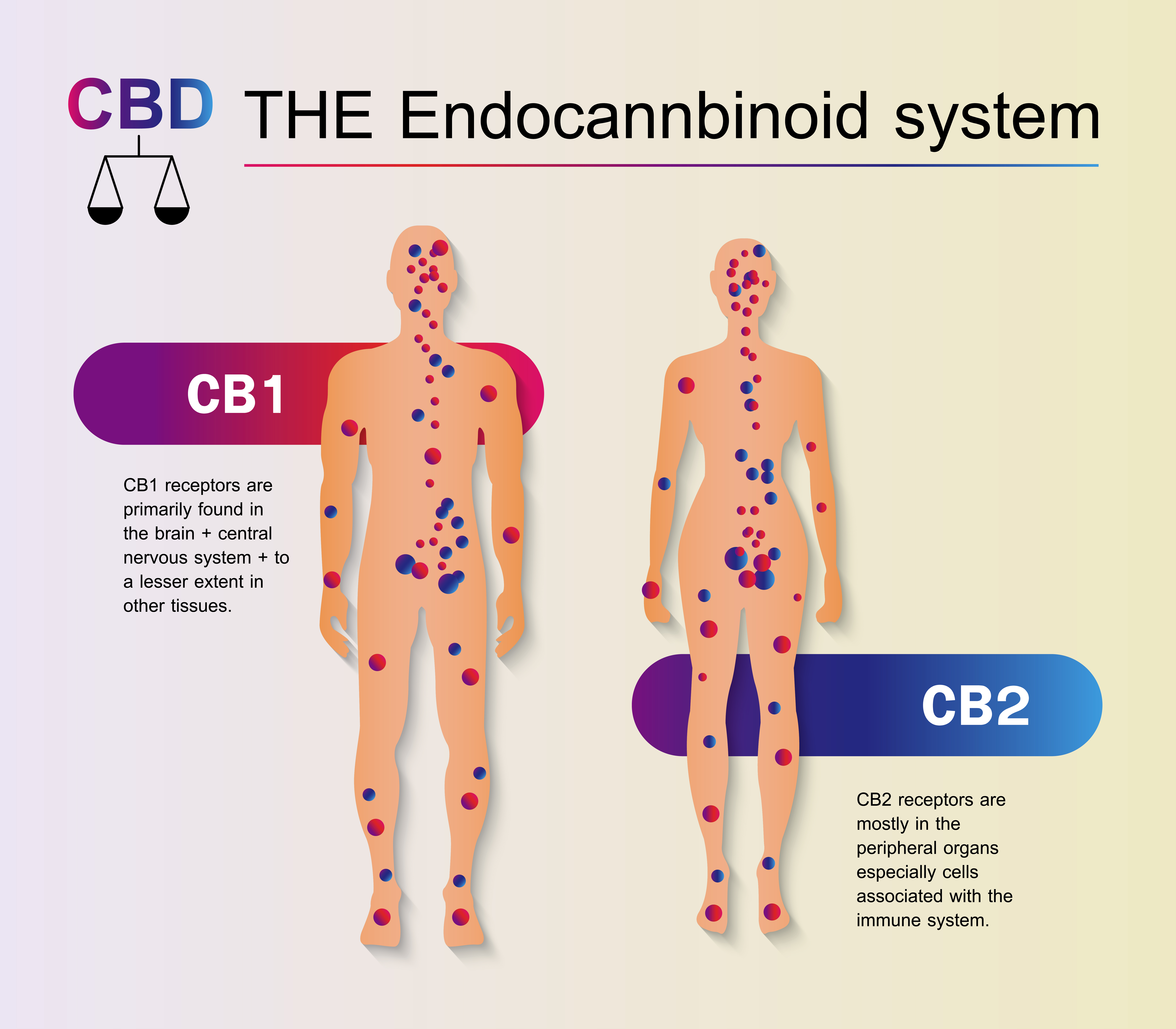
Our Endocannabinoid System and CBD
How Does CBD Work?
The human body is self-regulating. When you become too hot, your body produces sweat to cool you down. When your blood sugar becomes elevated after a meal, your body secretes insulin to lower it. And when you become dehydrated, your body sends your brain thirst signals, so you drink water STAT. Like a tightrope walker, it’s constantly shifting to keep balanced and healthy – a process called homeostasis. One way our bodies maintain homeostasis is via the Endocannabinoid System.
Discovered in 1992, the ECS is made up of receptors on cell membranes that regulate a variety of processes including eating, sleeping, relaxation and cognition. The ECS also assists in the body’s overall recovery and repair. It’s like your body’s “master control.” CB1 receptors are found mainly in the brain and spinal cord, while CB2 receptors are concentrated in immune cells in the peripheral nervous system.
Our bodies naturally produce compounds called “endocannabinoids” (endo = inside) that bind to those receptors, like a key fitting into a lock. CBD is a plant-based cannabinoid – or phytocannabinoid (phyto = plant) – that acts upon cell receptors in a similar way. Once the key (cannabinoid) is inside the lock (cell receptor), our body’s ability to maintain ideal health is “unlocked.” But there’s more! CBD also prevents the breakdown of a key endocannabinoid called anandamide (also known as the “bliss molecule”) allowing it to build up to higher, more effective levels.
CBD & Your Health
Many medical studies show that CBD has potential for benefiting human and animal health via its connection to the Endocannabinoid System. While research is ongoing, it’s fair to say CBD is capable of affecting almost every biological process in your body as it acts upon your CB1 and CB2 cell receptors (and helps your natural endocannabinoids work their magic as well). With life’s activities and challenges, the body can be worn down creating endocannabinoid deficiencies, resulting in many different ailments including pain. Supplementing these deficiencies with CBD can naturally achieve homeostasis within the body, relieving many of these ailments.
Your individual response to CBD is just that – individual
Responses to CBD depend on the amount used, frequency and length of use. In addition, your body’s metabolism, weight and health status all play a role in determining how you react to CBD oil. Some people report a quick response, while others report a slower response. We recommend consulting with your healthcare provider if you have any questions about how CBD hemp oil may be working for you.





cbd oil
Informative.